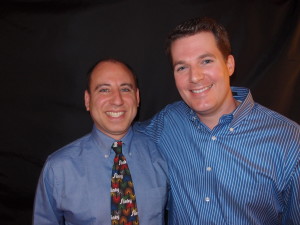Lung Cancer Isn’t Just Life-Changing. It’s Community-Changing (LinkedIn Influencer Cross-Post)
Being diagnosed with cancer terrifies all of us. In the best case, a cancer diagnosis involves painful or sickening treatments. In the worst case, a cancer diagnosis is an imminent death sentence. Either way, a cancer diagnosis instantly changes the victim’s life.
That’s usually true for family members residing with a cancer victim as well. Inevitably, they take on additional caregiver duties; and they too suffer the emotional toll associated with watching someone they love fighting for their lives. One person has cancer, but the whole family bears cancer’s burden.
When the doctor said my wife had lung cancer, I knew her life, and my life, and the lives of our young kids, would never be the same. What I didn’t appreciate was how other people’s lives were about to change as well.
Financial Implications
Cancer is an expensive disease. Treatments can cost millions; so much that cancer patients can run into health insurance policies’ lifetime maximum cap. Overall, Americans spend over $100 billion a year treating cancer. But cancer’s financial costs go well beyond healthcare costs.
In response to my wife’s diagnosis, my mom is moving from her Sacramento suburb (2.5 hours from us) into our Bay Area peninsula neighborhood. This might sound like the kind of sacrifice we expect moms to make for their children, but this move was hardly routine. It requires relocating my stepfather from his assisted living home, relocating her publishing business, and closing four real estate transactions (selling 2 residential properties and her office building plus buying a new residence). All told, my mom’s move implicates hundreds of thousands of dollars of healthcare expenses for my stepfather, a loss of jobs and revenue from her current community, and millions of dollars of real estate transactions. Who would have thought my wife’s lungs had such financial implications?
With such enormous economic stakes associated with a single cancer diagnosis, we must continue to invest in research for better detection tools and treatment options. Cancer isn’t just a plague on our family; it’s a drain on our society and our economy.
Implications for My Colleague
Previously, I could work hard building my career because my stay-at-home wife took primary responsibility for raising our children and running our household. Not surprisingly, my professional commitments became untenable when my wife no longer could handle those responsibilities.
I direct my law school’s High Tech Law Institute (HTLI), a key academic program at the law school. The directorship is a demanding job, consuming a lot of my time (including weekends and evenings) and attention. In light of my new caregiver responsibilities for my wife plus taking over her childcare and household responsibilities, I no longer could devote the necessary attention to the job.
Finding a successor isn’t easy. Most professors hate administrative duties, and not every professor has the skillset or personality to succeed in the job.
 Fortunately, my colleague Brian Love, a patent scholar we hired in 2012, has the skills and personality to handle the job and didn’t categorically reject the idea of taking on additional administrative duties.
Fortunately, my colleague Brian Love, a patent scholar we hired in 2012, has the skills and personality to handle the job and didn’t categorically reject the idea of taking on additional administrative duties.
Unfortunately, Brian is untenured, and the director’s role can make it harder to get tenure. First, the administrative duties can be a major distraction from the other tasks required to get tenure. At minimum, Brian will have to work hard to satisfy the director’s duties and complete the tenure requirements. Second, an administrative director often makes unpopular and occasionally risky decisions—all of which could be cited against the tenure candidate come tenure-time. Brian, despite all of these downsides, graciously agreed to co-direct the HTLI with me nonetheless.
Thus, my wife’s lung cancer required me to change my professional duties, which led to my colleague making a risky and time-consuming professional move. Furthermore, when Brian attends evening and weekend events that require the director’s attendance, his wife likely will bear more childcare responsibilities for their young child.
In other words, my wife’s lungs directly affects the life of my colleague’s spouse, four social network “hops” away from her.
Cancer Destroys Communities, But It Also Builds Them
Hundreds of people have been affected, directly or indirectly, by my wife’s diagnosis. But amidst of all of this disruption, we have seen amazing generosity from expected and unexpected sources. For example, we joined a synagogue a couple months before the diagnosis, and we had just started meeting other members. When members learned about my wife’s cancer, we were inundated with offers of support: dinners, playdates, childcare, rides and so much more. It was incredible to feel so much love from a group of people we hardly knew. It’s shown us what it really means for a community to care about its members. It took a tragedy to learn that lesson, but it would have been a tragedy if we’d never learned it.

[…] * Lung Cancer Isn’t Just Life-Changing. It’s Community-Changing […]